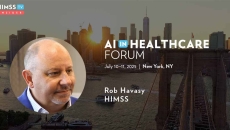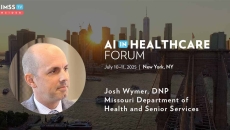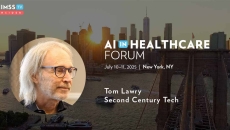clinical AI
Challenges such as workforce shortages that are not getting any better and tight funding are driving the healthcare industry toward AI deployment, says Rob Havasy, HIMSS senior director of informatics strategy.
Clinicians need to have integrity with how they present AI tools to their teams, focusing on how those tools can solve problems, says Josh Wymer, chief health information and data strategy officer at the Missouri Department of Health and Senior Services.
When implementing AI-powered assistants and ambient technologies, it is essential to know if what you are buying is an actual assistant and if it has features beyond just clinical documentation, says Punit Soni, founder and CEO of Suki.
The struggle is that "you can't just plop something in the middle of a system even though it has good effectiveness and expect people to change their behavior or trust it," says Dr. Cole Zanetti at Rocky Vista University College of Osteopathic Medicine.
If organizations are more transparent with clinicians and patients about AI adoption and deployment, stakeholders would feel more secure with it, says Nicole Ramage, senior market insights manager at HIMSS.
While most provider and payer organizations are using some form of AI, very few are getting demonstrable value at scale across the enterprise, says Tom Lawry, managing director of Second Century Tech.
When it comes to making strategic AI investment deals, companies need to articulate their competitive advantage and how they view the market around them, says Jason Smith, venture acceleration fellow at MATTER.
Artificial intelligence gives Cedars-Sinai's clinicians EHR-supported diagnoses and treatment plan recommendations after patients complete virtual urgent care clinic intake questions in a structured chat.
AI can be used as a tool to provide patients and their families with more information, faster access and more affordable care, says Laura Cooley, editor in chief of the Journal of Patient Experience.
Event attendees explored the challenges and benefits of AI while learning about governance, leadership strategy, workforce challenges, transparency, patient safety and data security at the gathering in Brooklyn, New York.









